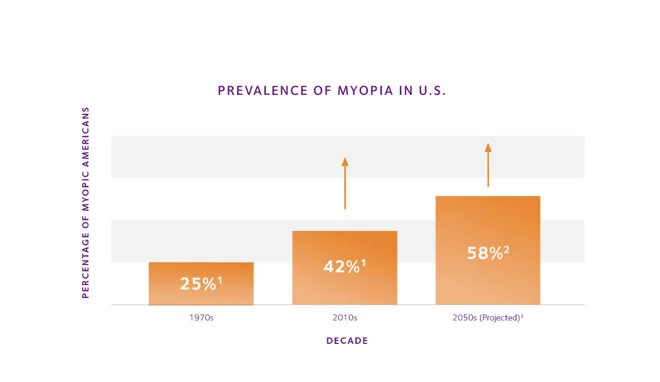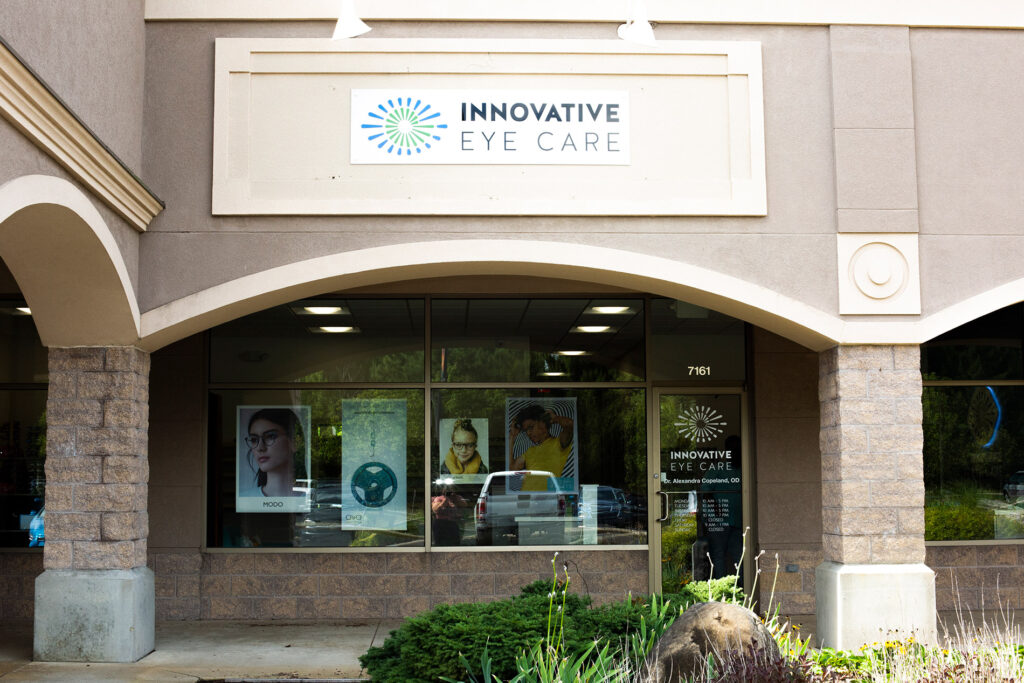Dr. Copeland is now certified to fit MiSight daily disposable soft contact lenses to help stop nearsightedness! MiSight 1-day contact lenses are the first and only FDA approved soft contact lens proven to slow progression of nearsightedness (myopia) in children ages 8-12. Read on to learn more about MiSight 1-day contact lenses and myopia management.
What is Myopia?

Myopia, more commonly known as nearsightedness, occurs when the eye focuses light in front of the retina instead of directly on it. Light needs to focus directly on the retina for the eye to see well. Glasses or contact lenses are worn to move the light focus back to the retina, resulting in clear vision.
What Causes Myopia?
Researchers believe both genetics and environment affect whether a person becomes nearsighted. Children with 1 myopic parent are 1.5X more likely to become myopic versus children with no myopic parents and 3X more likely with 2 myopic parents. Studies show that children who spend less than 10 hours per week outdoors are more likely to develop nearsightedness. As well as though who spend more time doing near work.
Why Be Concerned About Myopia?

The incidence of myopia in the US has risen 66% since 1971. Aside from blurry vision, myopia increases the risk of vision threatening problems later in life which is why it’s critical to stop nearsightedness. A nearsighted person is more likely to develop cataracts, glaucoma, and retinal detachment.
How Can Myopia Be Prevented?
As discussed above, there is no full proof way to prevent nearsightedness. Spending more time outdoors and reducing near work can help reduce a child’s risk. However, once a child is myopic, Dr. Copeland can manage the condition to help slow its progression. Below is a brief discussion of three ways Dr. Copeland can manage myopia.
MiSight Daily Disposable Soft Contact Lenses


This method uses specially designed FDA approved MiSight 1-day contact lenses to slow myopic progression. MiSight contacts are specially designed to provide both a treatment and vision zone in each lens. These two zones give the wearer clear vision and slow myopia progression. The contacts are worn during the day and thrown away after removal at days end.
Corneal Refractive Therapy (CRT)

CRT, also known as orthokeratology (ortho-K), uses FDA approved custom-designed gas permeable lenses to reshape the cornea (front of the eye). The child wears the lenses at night and the cornea is reshaped during sleep. The lenses are removed after waking. The child does not need to wear glasses or contact lens for all or most of the day. Aside from allowing the child to be correction free, the reshaping also slows myopic progression.
Low Dose Atropine
This method uses 1 drop of a low concentration of the drug atropine in each of the child’s eyes daily to slow myopia progression. The child still needs to wear glasses or contacts during the day.
Interested in learning more?
Contact Innovative Eye Care at 269-870-7334 to schedule your child’s myopia consult with Dr. Copeland today!
Additional Information
http://www.myopiaprevention.org/index.html
